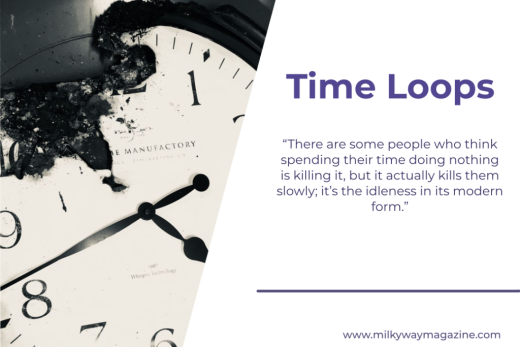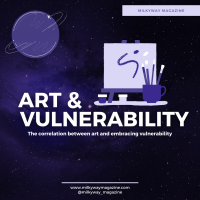
Written by Habiba Suliman
Edited by Ahmed Ashry
Love, hate, fear, and hope. Simple four-letter words that mean so much more to us. Four words that without them, I do not think we will be able to breathe normally like we do now. Just as we cannot live without feeling loved, we cannot exist without saying it either. But in order to hate, you must’ve loved with every ounce of your beautiful soul and body. And fear, oh fear, this one feeling that can either make you brave the world with no care or imprison you in a cage of your own creation. There is no middle-ground with fear; it’s always extreme. Now hope, hope is my dearest old friend that never leaves my side even if everyone else think it does. Hope is that sliver of light in a room masked with darkness; it’s a cat rubbing herself against you as if telling you “Don’t give up!”. Hope is life’s drums.
Yet, have you ever wondered why the feeling love was called “love”? Or why hate was named hate and so goes to fear and hope? Haven’t you ever marveled about the origins of those four words that without them our emotions and feelings would cease to exist?
Love.
That feeling that we hold on to for dear life. A word we say almost regularly that holds so much more meaning to it. A word, whether we choose to feel it or not, we eventually do. Oh, imagine a world without love. What a dark, gloomy world that would be. It would be one where anyone and everyone are just existing. Bodies roaming the earth with no anchor. Ships sailing the oceans without any marine in sight.
So, how did the word love describe the feeling of love? Or how did the word “love” come to be one of the most used and important words for us humans?
Essentially the word ‘love’ was once “leubh”, a word used by the Proto-Indo-Europeans approximately five thousand years ago to describe care and desire. When “love” was incorporated into Old English as “lufu”, it had turned into both a noun to describe, “deep affection” and its offspring verb, “to be very fond of”. As years passed on and the English language evolved along with it, the word “love” had different meanings yet all the same purpose. Over the years, it was used to describe one’s own sweetheart and then in the concept of “lovers” and in love letters. And after a while, people could finally start saying that they had “fallen in love”. A hundred years later, they were “lovesick” and so on it went. I think we still find new ways to describes this ecstatic kind of feeling that surges through our whole bodies without any previous warnings and I’m sure we will never stop finding new ways to do so, because as long as we shall breathe then we shall love.
Hate.
Oh, that feeling! I would never wish it on my darkest of enemies. Because a person who hates is a person who have loved with every ounce of their soul and have been betrayed deeply. Just as love is a feeling that captivates your body, mind, and heart, hate also imprisons all of them equally. It even blinds you sometimes to the extent of hurting that other person.
I’m sure we all connect the word hate to a feeling or emotion yet in old English or its origin it actually meant “opponent” or “enemy”. “Hata” was the original word for hate or hatred yet it wasn’t the direct meaning to what we call hate nowadays; this older meaning comes from ancient warrior societies. The hata was a person you fought against on the battle field. Later the word came to mean something like “strife” or “enmity.” Overall, it was understood not only as the opposite of love, which is also a feeling, but the opposite of peace between two countries or peoples. Just as the English language takes on new forms every couple of years so does its words. Later in the Middle Ages the word would come to refer to intense anger, for example wrath, whether divine or human. Nowadays we speak of “hating” a particular insect or cold pizza. There does not seem to be a deeply emotional hostility at work here. On the other hand, by hating individuals or whole groups of people—because of who they love, what they believe, or how they look—we go far beyond emotional hostility or even treating them as an adversary; we reject their very humanity.
Well, I think hate is such a devouring feeling that I do not wish not on any heart that was once capable of adoration.
Fear.
That prison of our own creation, that feeling that bounds your arms and legs. It’s this rush of adrenaline and the sweating. It’s your heart-racing. It’s seeing something that absolutely terrifies you. But how do we know to link what we are afraid of to the word “fear”?
Fær,old English for fear originally meant “sudden calamity, danger.” from Proto-Germanic feraz which means “danger”. Furthermore, sources of Old Saxon far ,which means “ambush,” are the Old Norse far (harm, distress, deception) ,Dutch gevaar, German Gefahr (danger). It also comes from PIE *pēr-, a lengthened form of the verbal root* which translates to “to try or to risk.” I think that fear is one of the words whose origin is not so far from its actual meaning yet it is one that has such complicated evolution from various languages.
I urge you to let go of your fear and never let it be your prison, because once you allow it to cage you, you shall never be free of its restraint.
Hope.
A children’s smile. A mother’s hug. A lover’s eyes. A sister’s kiss. And on and on it goes. Hope is everywhere only if you look for it. Hope never leaves although there are many times in life when we believe that it abandoned us. Yet, we are the ones to abandon hope over and over again. Hope is like your shadow: it’s always there but it shines brighter and brighter in the day when you can see it. It’s still there in the dark, but ever so slightly. Like it’s trying to tell you “I’m here. Just look close enough and you’ll find me.” The origins of the word hope are obscure. It appears to have started life among the Low German dialects of northern Germany (whence English hope and Dutch hoop), and later spread to Scandinavia (giving Swedish hopp in Danish haab) and High German (modern German has the verb often in the derived noun hoffnung ‘hope’). Where did the original Low German forms come from, though? A suggestion that has found some favor is that the word is related to hop, and that it started from the notion of ‘jumping to safety.’ The theory goes that the place of refuge thus reached gives one ‘hope,’ but it has an air of desperation.
Hope is everyone’s life companion. No matter where life takes you, hope will walk alongside you. do not forget that.







